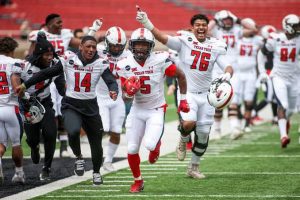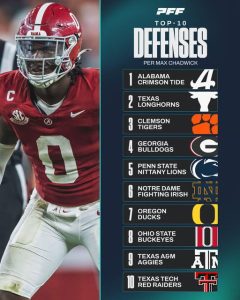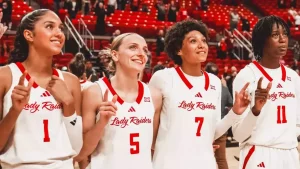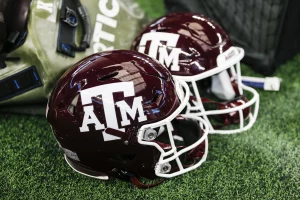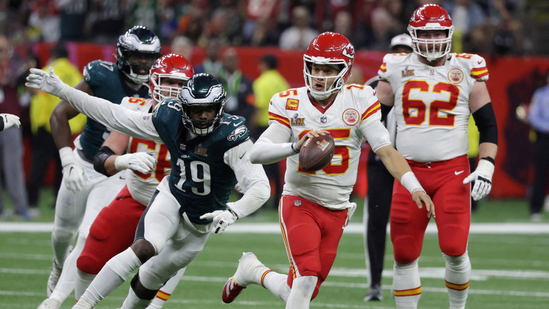
FILE PHOTO: Football - NFL - Super Bowl LIX - Philadelphia Eagles v Kansas City Chiefs - Caesars Superdome, New Orleans, Louisiana, United States - February 9, 2025 Kansas City Chiefs' Patrick Mahomes in action with Philadelphia Eagles' Josh Sweat REUTERS/Mike Segar/File Photo
As the excitement builds toward the 2028 Summer Olympics in Los Angeles, football fans across the world are buzzing with anticipation—not for traditional tackle football, but for flag football, a fast-growing, non-contact variation of the sport. Flag football’s debut as an official Olympic event marks a milestone, promising a new global stage for the sport. However, amid the hype and celebration, a growing tension reveals itself: the prominent support and attention lavished on current NFL players in connection to the Olympics, while flag football stars, who have long been the face and soul of the sport’s non-contact evolution, express feelings of being overlooked or “kicked to the side.”
This disparity raises important questions about recognition, legitimacy, and the future of football as a global Olympic sport.
The NFL Spotlight on the 2028 Olympics
The National Football League (NFL) is an unparalleled American sports institution, boasting some of the most famous athletes worldwide. Its players are household names with massive fan bases and endorsement deals. With flag football making its Olympic debut in 2028, the league sees a golden opportunity to promote the sport and its stars on an international scale.
Already, several NFL players have been linked with the Olympics, whether through promotional campaigns, appearances, or as ambassadors for the sport’s new Olympic format. The NFL’s marketing machine is actively spotlighting its stars, underscoring the league’s commitment to expanding football’s reach. These efforts amplify NFL players’ profiles even further, reinforcing their status as the “face” of American football, even in the flag football arena.
This NFL endorsement benefits the Olympics by bringing instant credibility, viewership, and commercial appeal. The presence of familiar NFL athletes is a powerful tool for engaging casual viewers and legitimizing flag football as a serious sport on the global stage.
The Flag Football Stars’ Perspective: Feeling “Kicked to the Side”
Despite the attention the NFL and its players receive, flag football athletes—many of whom have dedicated years to growing the sport independently—feel marginalized. One flag football star, who spoke candidly on the condition of anonymity, described the sensation vividly:
“When NFL players get all the support, the spotlight, and the resources ahead of the 2028 Olympics, it’s like we get kicked to the side. We’ve been the ones building this sport from the ground up, traveling to tournaments, coaching clinics, and growing flag football internationally. Suddenly, because NFL players are involved, our efforts feel ignored.”
This sense of exclusion is understandable. Flag football athletes are not just casual participants; many are elite competitors who have propelled the sport’s rise, particularly in countries where tackle football is less accessible or popular. They see flag football as a distinct discipline with its own community, rules, culture, and grassroots growth. The influx of NFL players and the league’s dominance in promotion feels like an overshadowing, a crowding out of the authentic voices and stories that have shaped the sport.
Flag Football’s Roots and Growth
Flag football is more than just a simplified or “lite” version of tackle football. It is an independent sport with global reach, inclusivity, and a growing fan base. The International Federation of American Football (IFAF) has been the chief advocate for flag football’s inclusion in the Olympics, emphasizing its accessibility, gender equality, and suitability for Olympic competition.
The sport is especially popular in countries where traditional tackle football is less practical due to safety concerns or lack of infrastructure. Flag football requires fewer players, less equipment, and has a significantly lower risk of injury. This has made it a natural fit for international growth and youth participation.
At the grassroots level, flag football tournaments attract thousands of athletes from diverse backgrounds, many of whom juggle jobs or school while competing at a high level. These athletes often lack the spotlight or financial backing of NFL players but have formed the backbone of flag football’s worldwide expansion.
The Complex Relationship Between Flag Football and the NFL
The NFL’s involvement with flag football is a double-edged sword. On one hand, the league’s backing provides crucial resources, media exposure, and legitimacy that can accelerate flag football’s development as an Olympic sport. The NFL also organizes its own flag football leagues and youth programs, which help funnel talent and interest into the sport.
On the other hand, the NFL’s dominance can overshadow the independent flag football community. When Olympic committees and sponsors prioritize NFL-affiliated players or programs, the independent flag football stars’ efforts can be relegated to the background.
This dynamic creates tension around who “owns” the sport’s narrative. Is flag football just an extension of the NFL’s brand, or is it a standalone sport with its own identity and heroes? This question matters because it shapes funding, representation, and ultimately, how the sport grows globally.
The Personal Toll: Identity and Recognition
For the flag football star who voiced frustration, the issue runs deeper than mere recognition—it touches on identity and belonging.
“We’ve been told time and again that flag football is important because it’s safer and more inclusive. But when the spotlight turns to NFL players, it feels like our contributions don’t matter. We’re proud of our sport and the path we’ve forged. It’s painful to feel invisible just because we don’t wear the NFL helmet.”
This sense of invisibility impacts athletes’ morale, sponsorship opportunities, and media attention. It also complicates the message flag football sends to young athletes worldwide who look to role models for inspiration.
If flag football is to thrive as an Olympic sport, the stories and struggles of these athletes must be elevated alongside the NFL’s stars. Recognition validates their commitment and underscores the sport’s unique value.
What the Olympics and Flag Football Need Moving Forward
As the 2028 Olympics approach, the International Olympic Committee (IOC), IFAF, and the NFL face a delicate balancing act:
- Equal Representation: Olympic organizers should ensure flag football stars receive adequate representation in marketing, commentary, and media, highlighting their achievements and contributions alongside NFL players.
- Community Inclusion: Collaborative programs between the NFL and independent flag football organizations can bridge gaps, sharing resources without eclipsing grassroots efforts.
- Promotion of Flag Football’s Unique Identity: The sport’s Olympic debut is a chance to showcase flag football as its own discipline, with a rich community and global impact beyond its connection to tackle football.
- Support for Athletes’ Stories: Humanizing flag football athletes by sharing their journeys, challenges, and successes will foster a deeper connection with fans and sponsors.
- Development of Global Flag Football: Continued investment in international flag football leagues and youth programs is vital to sustain growth beyond the Olympics.
Looking Ahead: A New Era for Football on the World Stage
The inclusion of flag football in the 2028 Olympics is a watershed moment for the sport and football as a whole. It holds the promise of uniting diverse athletes and fans through a dynamic, accessible version of America’s beloved game.
But the tensions between NFL players’ prominence and flag football stars’ calls for recognition highlight the growing pains of a sport in transition. Flag football athletes are not just ancillary figures; they are pioneers and ambassadors for a sport with global dreams.
If the Olympic movement and the NFL can acknowledge and elevate these flag football stars, the 2028 Games can become more than a showcase—they can be a celebration of football’s full spectrum, from grassroots passion to professional spectacle.
Final Thoughts
Feeling “kicked to the side” is an emotional and real response from flag football stars amid the 2028 Olympics’ preparations. Their voices deserve to be heard, their efforts recognized, and their sport celebrated on its own terms.
As the world tunes in to watch flag football make its Olympic debut, let it be a moment where every athlete—from NFL stars to grassroots flag football players—feels seen, valued, and part of a shared legacy.
